This Cleaning Mistake Could Be Ruining Your Home, Experts Say
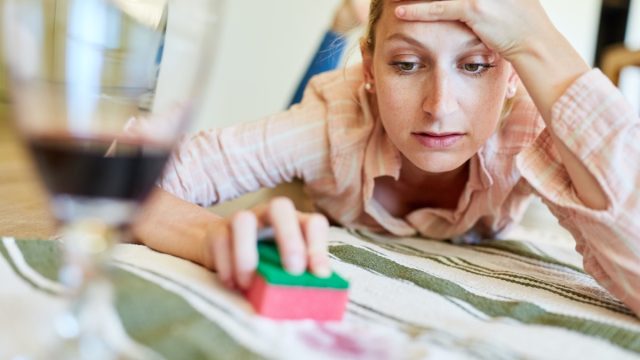
Whether you’re sourcing your tips from friends or Facebook, the internet is home to countless supposed hacks that promise to cut your cleaning time in half. Unfortunately, many of those cleaning tips that are supposed to make your life easier are actually giving you more messes to clean up in the long run—and over time, they can even do serious damage to your home.
One of the worst offenders among these bad cleaning tips? Using baking soda to clean textiles, according to cleaning expert Richard Kennedy, owner of The Vacuum Experts. While baking soda is frequently touted as the solution to everything from stains to smells when it comes to clothing, furniture, and rugs, Kennedy cautions that it can actually ruin the items you’re intending to clean with it.
“You need to be careful what you’re putting it on,” says Kennedy. “I often see people recommending using it on everything, when in fact it can commonly stain [textiles].” However, that’s not the only piece of bad advice that may have snuck its way into your cleaning routine. Read on to discover which so-called “hacks” are actually destroying your space. And if you’re sprucing up your home, check out these 20 Genius Tricks That Will Cut Your Cleaning Time in Half.
1
Cleaning grout with toilet bowl cleaner.
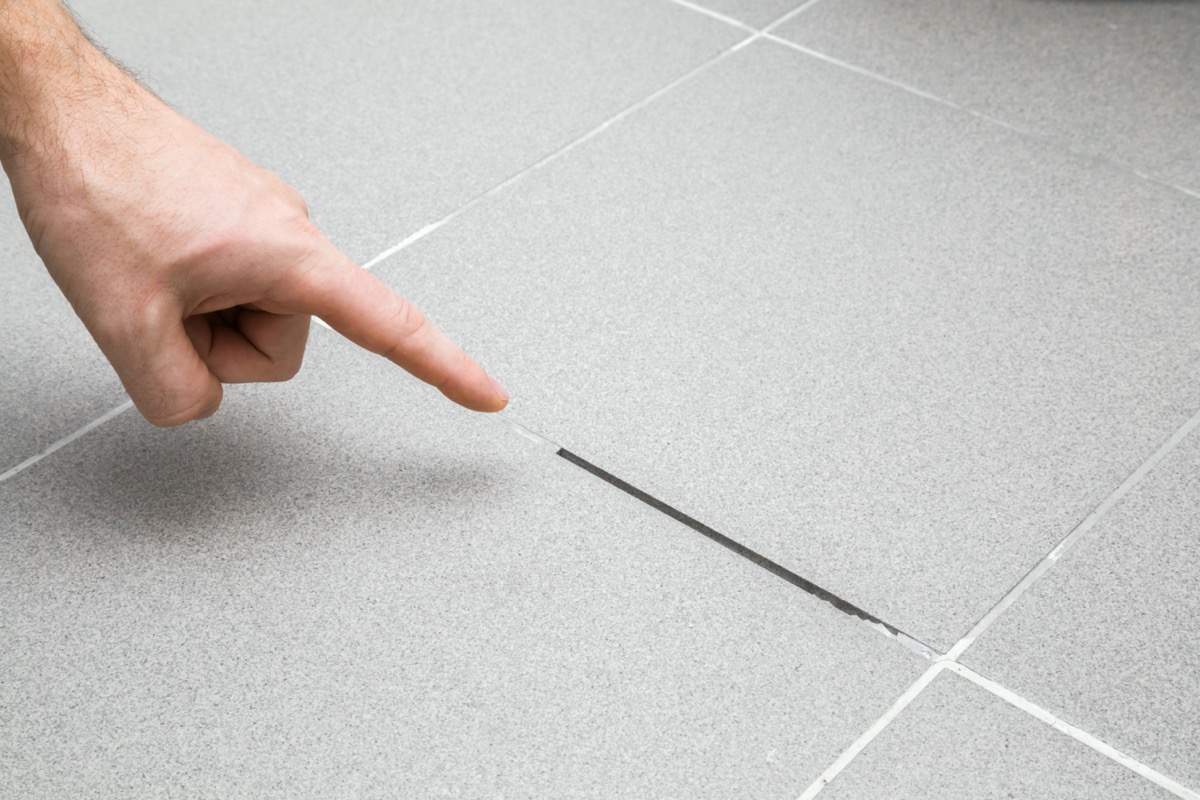
If you’ve ever seen someone claiming that toilet bowl cleaner is the solution to your dingy grout woes, you’ll want to think twice before heeding their suggestion.
“Toilet cleaners are sticky and hard to rinse off and most of them contain bleach or other unsafe chemicals. This, in turn, makes them risky to use in the kitchen,” explains Cyrus Bedwyr, a professional kitchen- and oven-cleaning specialist with Fantastic Services. He notes that in addition to not being food-safe, these cleaners can discolor your grout. Instead, Bedwyr recommends using a vinegar and water solution to get the area between those tiles gleaming again. And if you want to stock your cleaning cabinet, start with these 20 Genius Products That Make Cleaning So Much Easier.
2
Removing sticky residue with acetone.
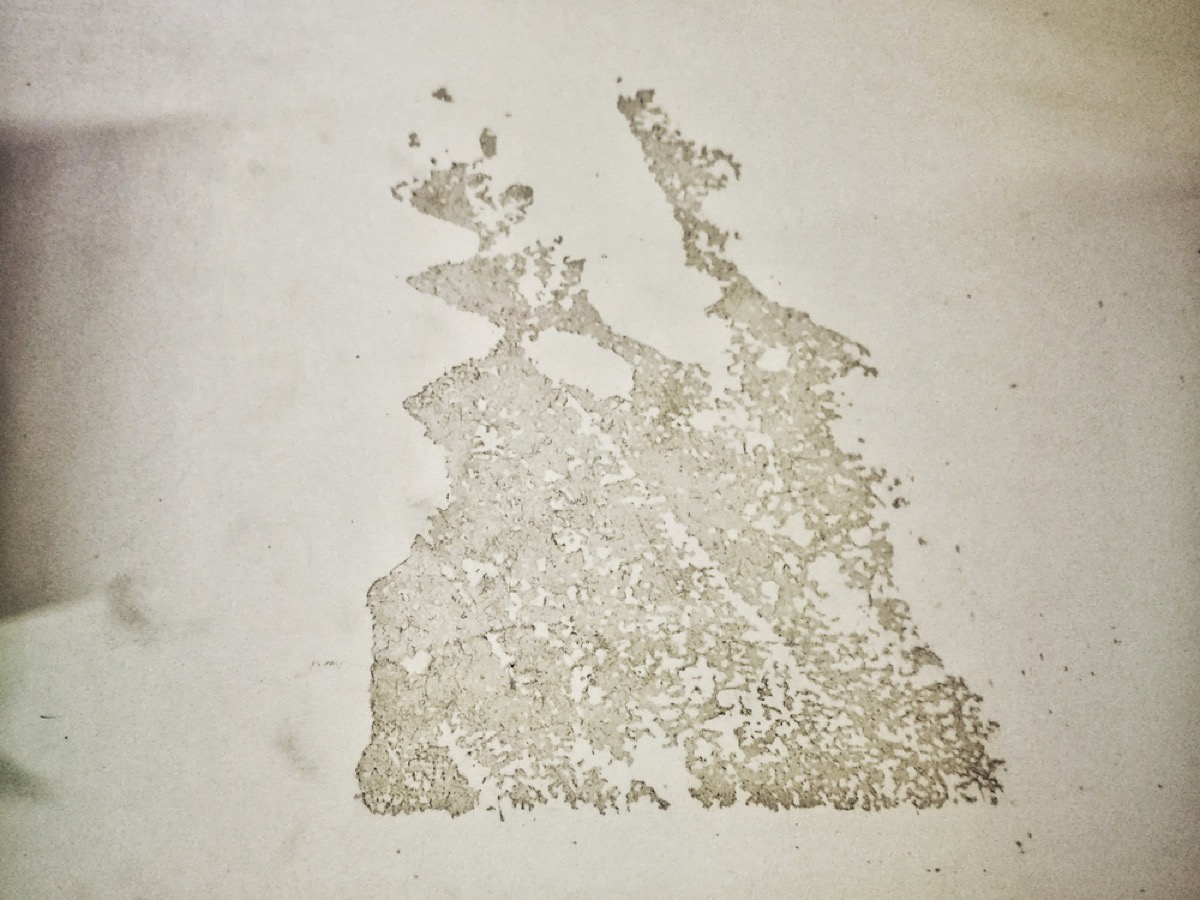
Sure, it’s great at removing last week’s manicure, but nail polish remover has no place being used to remove sticker residue on your appliances or furniture.
“Nail polish remover can easily discolor and even scratch your appliance’s surface and, in turn, void your warranty,” says Bedwyr. Instead, he suggests using baby oil or almond oil to get that sticky gunk off cleanly.
3
Disinfecting any hard surface with bleach.
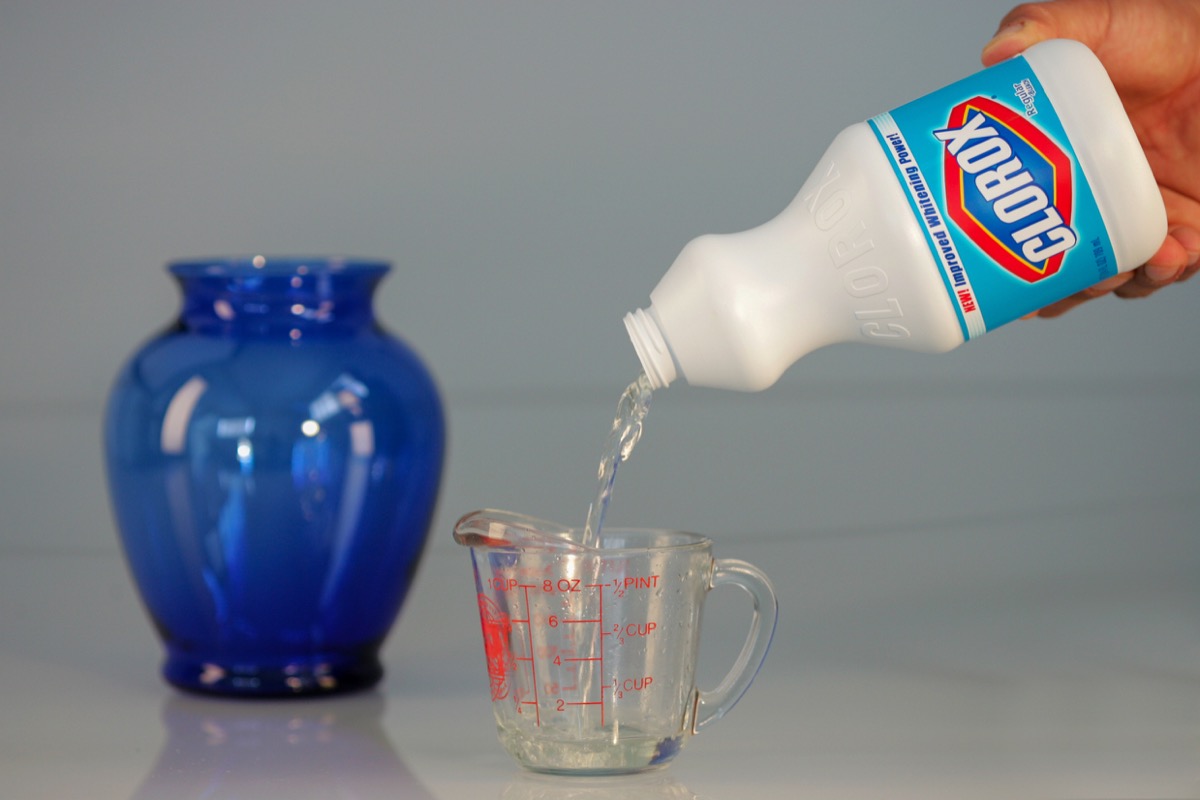
Bleach may be effective for disinfecting some surfaces, but it can do more harm than good if you’re using it as an all-purpose cleaning product.
“Never use bleach on wooden surfaces, stainless steel, or natural or manmade stone,” says Natalie Barrett, service quality supervisor at Nifty Cleaning Services. Barrett notes that even diluted bleach can degrade those materials or cause stains that can’t be removed. And for more great cleaning tips delivered directly to your inbox, sign up for our daily newsletter.
4
Pouring vinegar in your garbage disposal.

Vinegar may be the natural disinfectant of choice for many eco-conscious cleaners, but it’s not appropriate for cleaning everything in your home. In fact, it could spell serious trouble for your garbage disposal.
“White vinegar can actually damage the rubber elements in your garbage disposal, so watch out,” says cleaning Beth McCallum of Oh So Spotless.
5
Using peanut butter to remove gum from clothing.
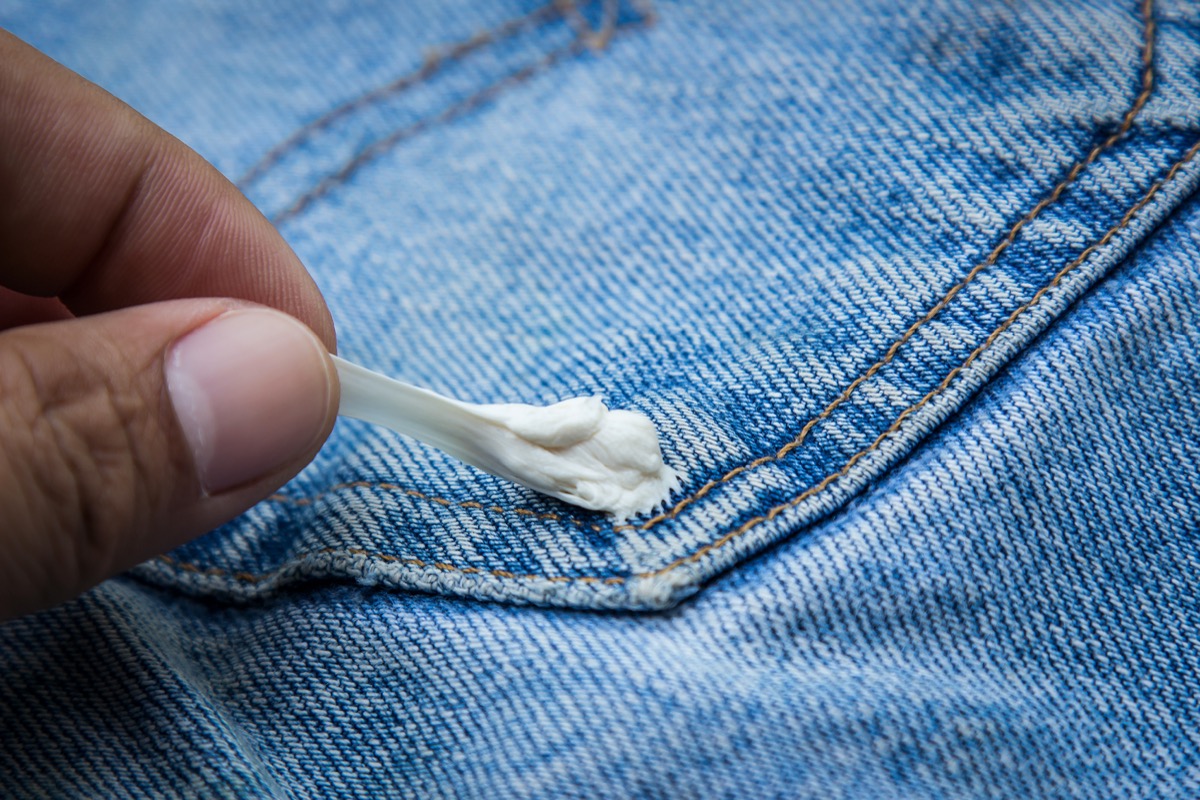
While peanut butter is frequently said to be the best thing out there for removing gum from hair or clothes, using the sticky spread that way can leave you with even bigger messes on the horizon.
“Peanut butter can often stain your clothes,” cautions McCallum. She says that if you insist upon trying this method to remove gum, make sure to use oil-free peanut butter and test it on an inconspicuous part of any garment before using it on a larger area.
6
Using citrus cleaner on your stone countertops.
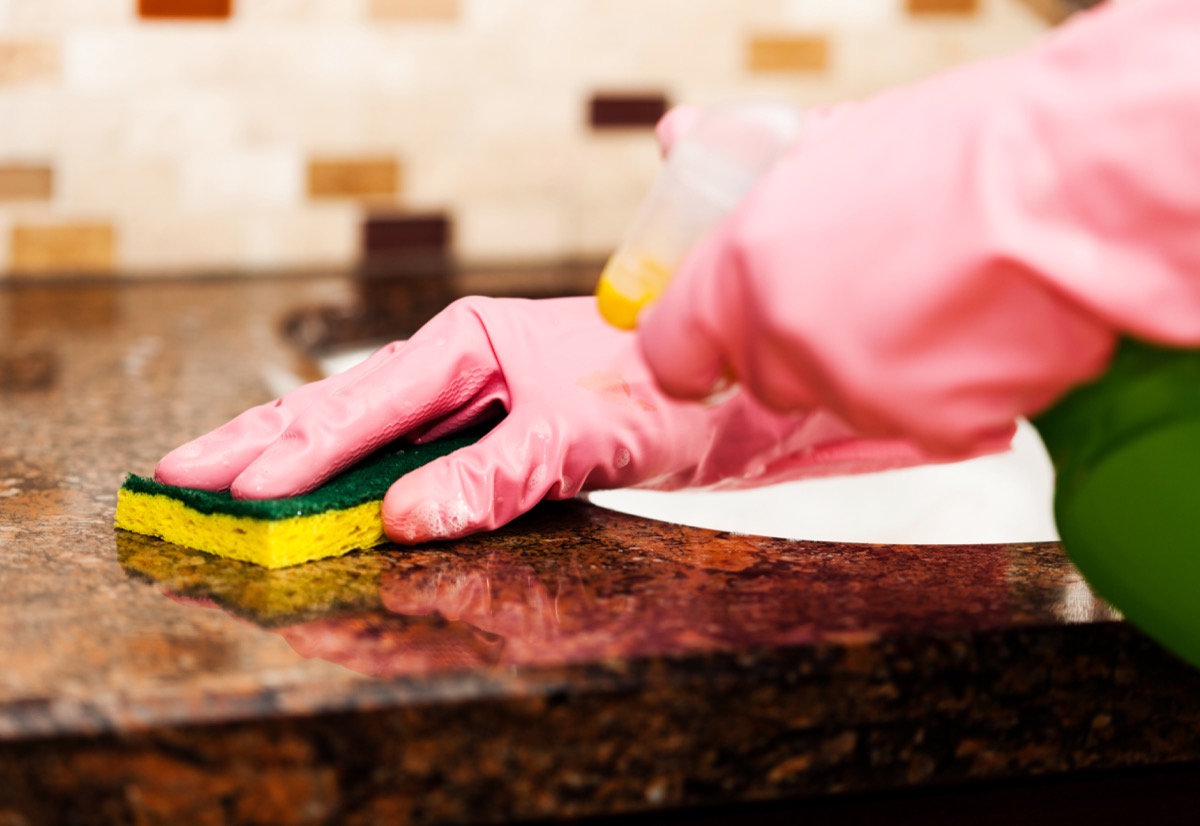
That bottle of cleaning solution says it’s safe for stone counters, so it must be safe for stone counters, right? Well, not exactly.
Natural stone consultant Mark Hubert, owner of GroundRoof, says that many cleaners labeled safe for stone counters contain citric acid, which can degrade natural stone over time. Hubert says that even using dish soap on your countertop could produce serious damage if you’re not careful. “Many scented options can still damage your marble,” thanks to the citric acid in their formula, he cautions. And while you’re tackling those household chores, check out these 20 Things in Your Home You Didn’t Realize You Should Be Cleaning.
7
Using metal sponges to clean furniture.
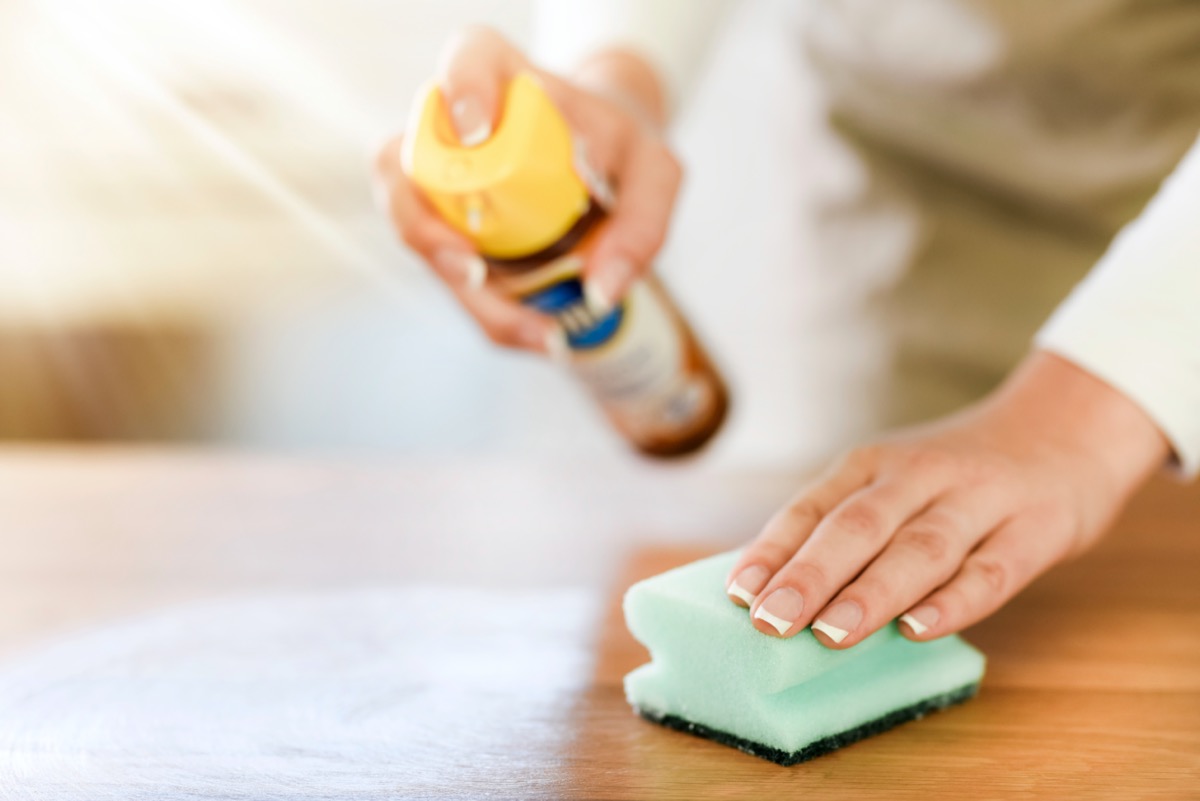
That sponge’s metal scrubbing pad may be great for cleaning pots and pans, but using it to clean wooden furniture or trim work in your home can lead to disastrous results.
“Metal sponges are great for removing gunk, but on wood, will cause scratches and will ruin [those items],” says Abe Navas, general manager of Emily’s Maids. And while you’re neatening up around the house, check out these 50 Easy DIY Home Hacks.